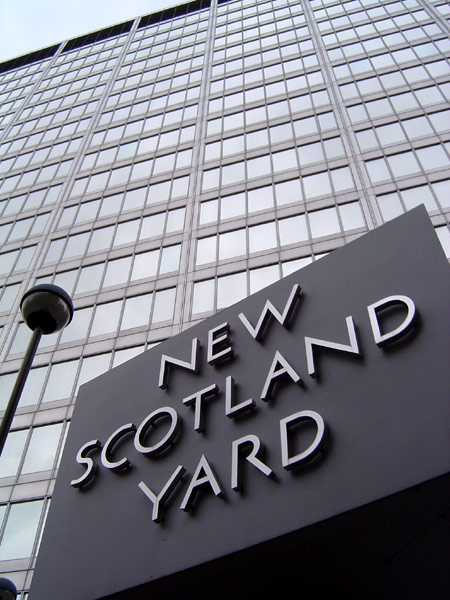 |
| (c) ChrisO |
"This story is so old and boring. Where does it take anybody? Newspapers will seek out information from whatever sources they can, until newspapers close down. I don't think it does us any damage. It's a bit of a non-story".
These
are the words of a Scotland Yard source as reported
in The
Guardian
on 6th
September 2010 regarding the news that the phone hacking scandal
investigation might be reopened. With hindsight, and lets be honest,
with any foresight, these are not clever words. But might they
represent something else, something more sinister regarding the
motives of Scotland Yard in this whole debacle?
I should note that I am mainly using The Guardian’s articles in this post because they have been the most pro-active media outlet in getting to the bottom of this scandal. Whereas other newspapers appear to have been fearful of writing about the dubious activities of News International for whatever reason, since it returned to the headlines in 2009, The Guardian have been exemplary in their coverage.
This
morning, the Prime Minister (PM) David Cameron offered an opening
statement
on the affair during a press conference. In an attempt to
harvest the public moral outrage at the intrusions of News
International journalists hacking into the private phones of ordinary
vulnerable citizens, the PM publicly announced that two inquiries
will take place. The first, and possibly the most important of the
two inquiries, is to be conducted by a Judge and will look at the
failure of the first police investigation in phone hacking in 2006.
He stated:
“So for those worried about the police investigating the police, this has full and independent oversight. But let's be clear. Police investigations only get you so far.What people really want to know is - what happened? And how was it allowed to happen? That is why the Deputy Prime Minister and I have agreed that it's right and proper to establish a full, public inquiry to get to the bottom of what happened. A judge needs to be in charge so there's no question that it is totally independent and things are done properly.”
Yet
right from the start, the Metropolitan police have been less than
forthcoming on the nature of their investigation. John Whittingdale
MP, who was chair of the House of Commons media select committee
inquiry, told The
Guardian
in
early 2010:
"We found it difficult to get information from a number of bodies, including the police, who were less than forthcoming. I think there was an acceptance that it was convenient to a lot of people that one reporter should get the blame. But the important thing for us is to ensure it can't happen again."
Subsequent
articles in April 2010 by Nick Davies in The
Guardian,
here
and here,
highlight the apparent contradictory, evasive and misleading ways
that Scotland Yard have gone about their business. They
have deliberately misled the public over the number of people whose
phones have been hacked, they did not tell victims that their phones
had been clandestinely infiltrated, and they have avoided revealing
information that is in the public interest despite Freedom of
Information requests.
All the evidence that has been coming out in
the last few days has been in police hands since it was gathered in
2005/6. Why does none of this evidence surface until it has been
uncovered by more scrupulous journalists and released into the public
domain? Who are the Met seeking to protect?
Andy
Hayman, the man who was formerly in charge of The Met’s phone
hacking investigation, and since employed by News International may
be able to help with enquiries. Hayman
resigned from the Met
following allegations over his credit card expense claims and
allegations of improper conduct with female colleagues, although an
internal inquiry cleared him of wrongdoing. However the Independent
Police Complaints Commission (IPCC) criticised Hayman for misleading
the public over the De Menezes shooting.
We now know that News
International were paying some police officers for information. Andy
Coulson and Clive Goodman have been arrested over the last few hours.
Given Hayman’s employment and his direct link to the original
investigation, it would be interesting to know whether there was any
evidence of a relationship between Hayman and News International
before his resignation.
Whoever
might be responsible at an individual level, there has been little
evidence of institutional acceptance at The Met for what has happened
since 2006. Nobody has come forward to publicly apologise to the
victims of phone hacking for their inaction or lack of candour thus
far. Legally, the victims of phone hacking are victims of a crime.
Regardless of the discussions and arguments over the public/private
nexus and the rights of the rich and famous, phone hacking victims
should be treated as such and afforded explanations as any other
victims are.


No comments:
Post a Comment